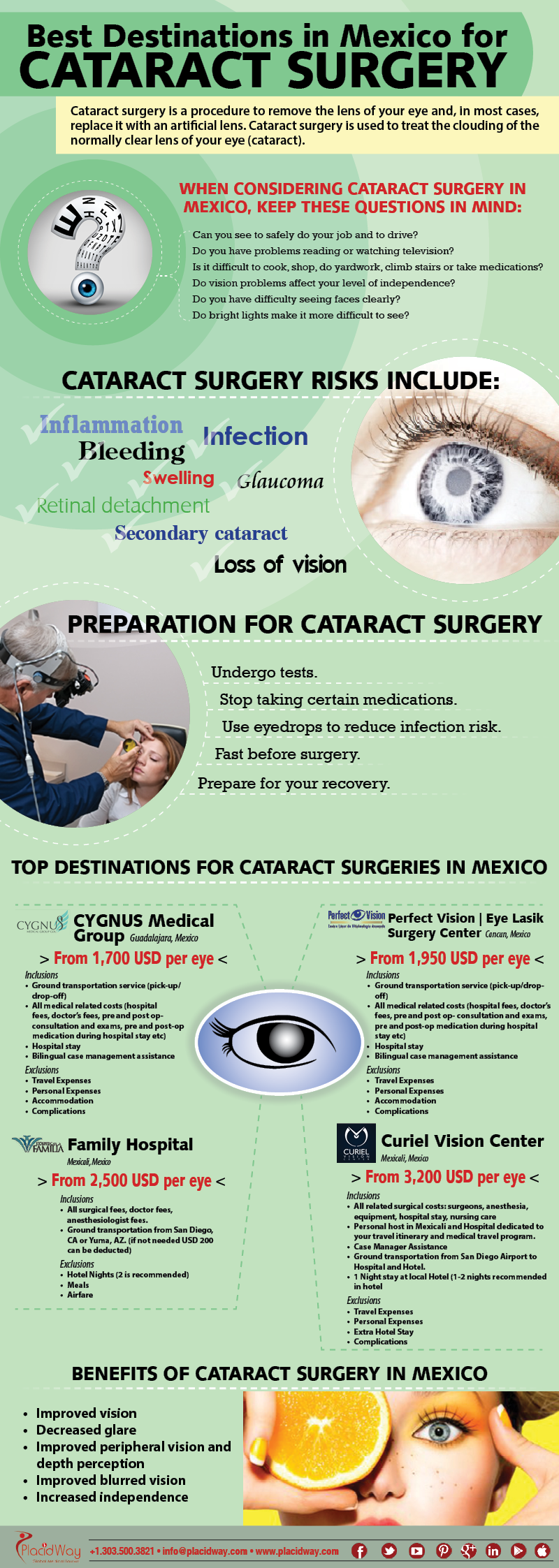Cataract Surgical Procedure Preparation: Tips From Experienced Medical Professionals
Cataract Surgical Procedure Preparation: Tips From Experienced Medical Professionals
Blog Article
Composed By-Lam Barbour
As you prepare for your cataract surgical treatment, it's necessary to heed the recommendations of experienced specialists who have directed plenty of patients via this procedure. From understanding how much do cataract surgery cost -operative steps to ensuring you are literally ready for the treatment, their insights can make a considerable distinction in your surgical trip. By putting in the time to pick up from their knowledge, you can approach your upcoming cataract surgery with self-confidence and a clear understanding of what to anticipate.
Pre-Operative Preparations
Before your cataract surgical treatment, there are a number of important pre-operative prep work to guarantee the treatment goes efficiently. Your medical professional will recommend you to stop taking specific medicines, particularly blood slimmers, prior to the surgery to lower the danger of blood loss throughout the treatment. Additionally, you might need to undertake a series of pre-operative examinations, such as blood work and an ECG, to ensure you remain in good health for the surgical procedure.
On the day of the surgical procedure, you'll need to schedule someone to drive you home as your vision may be blurry, and you shouldn't drive immediately after the treatment.
Remember not to consume or consume anything after midnight the night prior to your surgical treatment, unless your medical professional advises otherwise. It's vital to comply with all pre-operative guidelines offered by your healthcare team to guarantee an effective and risk-free cataract surgery experience.
Procedure Details
Comprehending the actions associated with cataract surgical procedure can assist relieve any type of anxiousness you may have concerning the procedure.
When you come to the medical facility, you'll be prepped for the operation by the clinical staff.
The cosmetic surgeon will certainly provide regional anesthetic to numb the eye area and ensure you're comfortable throughout the treatment.
A little incision will certainly be made in your eye to access the clouded lens.
Using How Much Does Bladeless LASIK Cost , the specialist will break up the cataract and gently suction it out.
Once the cataract is gotten rid of, a new synthetic lens will be dental implanted in its area.
This intraocular lens will certainly assist bring back clearness to your vision.
The entire surgery commonly takes about 15 to 30 minutes per eye.
After the procedure, you'll be kept an eye on for a short period prior to being permitted to return home.
A lot of clients experience boosted vision practically quickly following cataract surgery.
Post-Operative Treatment
Upon completion of your cataract surgical procedure, it's critical to adhere to the recommended post-operative care guidelines to ensure a smooth healing procedure. Your cosmetic surgeon will provide detailed guidance, which normally includes utilizing suggested eye drops to stop infection and decrease swelling.
It's essential to prevent rubbing or putting pressure on your eyes and to wear a protective guard while resting to avoid accidental contact. You might experience some moderate pain, itching, or sensitivity to light, but these symptoms typically decrease within a few days.
It is essential to attend all follow-up visits so your surgeon can check your progression and attend to any worries without delay. While you may resume light activities right after surgery, laborious exercise and training hefty things need to be avoided for a few weeks.
Final thought
In conclusion, by adhering to the pre-operative directions, undergoing required tests, and preparing in advance, you can help make sure a successful cataract surgery experience. Count on the knowledge of your medical care group and look after on your own both prior to and after the procedure. With appropriate preparation and adherence to guidelines, you can anticipate boosted vision and a smoother recovery procedure.
